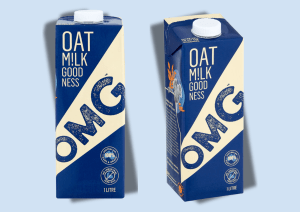Government initiatives are creating a favourable climate to boost the machine tools market in the Asia-Pacific (APAC) region, according to a report from research and consulting firm Frost & Sullivan.
The growing purchasing power of middle-class consumers in Asia has led to an increase in spending on consumer goods, according to the report. In a rush to meet the escalating demand, manufacturers catering to the APAC region are investing in new production plants and machines, creating a requirement for machine tools in the process.
Frost & Sullivan’s analysis reveals this requirement will push the APAC machine tool market to grow at a compound annual growth rate of 2.2 per cent from 2018 to 2023, reaching $10.5bn in revenue.
Divya Saiprasad, principal consultant, industrials at Frost & Sullivan, said, “Business expansion strategies and plant localisation of end-user industries are set to drive the growth of the machine tool industry in the APAC region. The rise in demand for machine tools can be attributed to the increase in the production of auto components and growth of the automotive industry.”
Frost & Sullivan’s latest research, Asia-Pacific Machine Tool Market, Forecast to 2023, explores the trends and factors influencing the machine tools industry in the Asia-Pacific region and provides a thorough analysis of the current market scenario. The report examines the key market drivers and restraints and presents detailed market share analyses and revenue forecasts through the year 2023. The research also offers strategic recommendations to leverage the growth opportunities identified in this sector.
Japan, South Korea, and Taiwan are expected to remain the top three markets for machine tools in the region in 2023, contributing 69.5 per cent. Additionally, emerging economies such as Vietnam, Indonesia, and Thailand are anticipated to showcase strong growth over the next three years, driven by foreign direct investment inflow in the manufacturing sector.
“On the end-user vertical front, engineering and automotive sectors are projected to remain dominant,” Saiprasad said. “The aviation sector is also expected to further supplement the market for machine tools, given the demand from the burgeoning upper-middle-class population.”
According to the report, machine tool vendors can tap into further growth by:
- Integrating new features and technologies into additive manufacturing to increase the overall efficiency of multi-tasking machine tools.
- Including new technologies such as IoT and big data for preventive and predictive maintenance of machines to help machine tool companies enhance their customers’ rate of operations in manufacturing, thereby increasing their brand recognition in the market.
- Developing and selling smart machines equipped with AI, robots, and software technologies to expand sales and improve the productivity of customers in APAC countries.
- Increasing production efficiency, shortening delivery times, and maintaining price competitiveness to increase sales and improve market profitability.
- Expanding sales, distribution, and aftermarket service channels in emerging Asian countries to retain customers.
Asia-Pacific Machine Tool Market, Forecast to 2023 is a part of Frost & Sullivan’s Industrial Automation & Process Control Growth Partnership Service program, which helps organisations identify a continuous flow of growth opportunities to succeed in an unpredictable future.
For further information on this analysis, please visit: http://frost.ly/40p.






